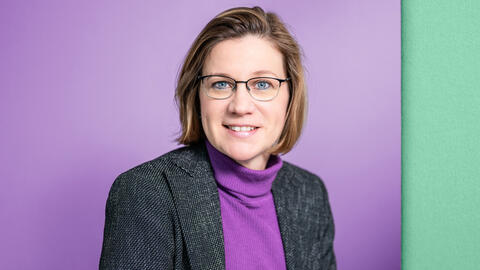Higher Education Institutions cooperate with external partners from business, politics, culture and civil society in a variety of ways. Knowledge exchange – i.e. the bidirectional exchange of knowledge and technology in research and teaching – is becoming increasingly important for the profile development of universities. Many institutions are currently developing transfer and cooperation strategies and defining institutional goals for their knowledge exchange. In this context, universities report on multifarious knowledge exchange activities in humanities, social sciences and the Arts (SSHA). At the same time, there is a desire to increase further the potential of those disciplines with regard to knowledge exchange. This experience hits a world in which calls for the implementation of the "Third Mission", for innovation and impact affect the universities as a whole, but SSHA in particular.
In relation to SSHA knowledge exchange, universities repeatedly name three topics that need to be tackled:
- Motivation and awareness
Why is there a need for knowledge transfer from and with SSHA? How can SSHA academics and students be made aware of this topic and appreciate it? What understanding of knowledge transfer does include SSHA appropriately? - Capacity building and support
We are looking for solutions how institutions can support sustainable SSHA transfer activities both structurally and by providing suitable service for SSHA scientists and students. - Foster start-ups
Science-based start-ups with and from the SSHA are possible, but require the use of corresponding instruments. Which methods can be used to integrate the SSHA more into the start-up world?
Along these questions, selected higher education institutions from European countries presented how they address these challenges and share their experiences. Based on these experiences, we discussed conclusions and inspiration for German higher education institutions.
The workshop wanted to encourage, inspire and stimulate university representatives – vice-presidents, deans and transfer officers – who want to professionalise knowledge exchange from the SSHA.
30 January 2020, 10.00 to 16.00
Allianz Forum
Pariser Platz 6, 10117 Berlin, Germany
10.00
Registration and coffee
10.30
Welcome
Andrea Frank, Stifterverband, Berlin, Germany
10.40
Introduction
Dr. Christoph Köller, Managing Director G&K, Huerth, Germany
10.55
Motivation and Awareness
The path from awareness to appreciation – how to integrate transfer into SSHA- academics value system
Prof. W. Nicol Keith, Director of Impact, Institute of Cancer Sciences, University of Glasgow, Scotland
11.25
Support and Services
Knowledge exchange needs a home – the Long Room Hub as a space for "research, enable, transform"
Dr. Doireann Wallace, SHAPE-ID Project Manager, Trinity College Dublin, Ireland
11.55
Capacity Building
Enabling SSHA students and academics – the supporting role of the institution
Assistant Professor Jonneke Bekkenkamp, Director of the Humanities Lab AVS, University of Amsterdam, The Netherlands
12.25
Lunch break
13.25
Impact Café Session
Based on the input given by the speakers, attendees will share their perspectives on the topics mentioned above. Issues but also ideas for solutions will be revealed by using a world café-approach.
14.40
Coffee break
15.00
Start-ups
SSHA, start-ups and interdisciplinarity – how to increase the SSHA start-up potential
Dr. Mark Mann, Lead for Humanities and Social Sciences, Oxford University Innovation, Oxford University, United Kingdom
15.30
Closing Panel: Conclusions for the German Higher Education System
16.00
End of the workshop
Downloads
In cooperation with G & K Managementberater
Contact

Elke Oelschlägel
ist Büroleiterin der stellvertretenden Generalsekretärin.
T 030 322982-522





















